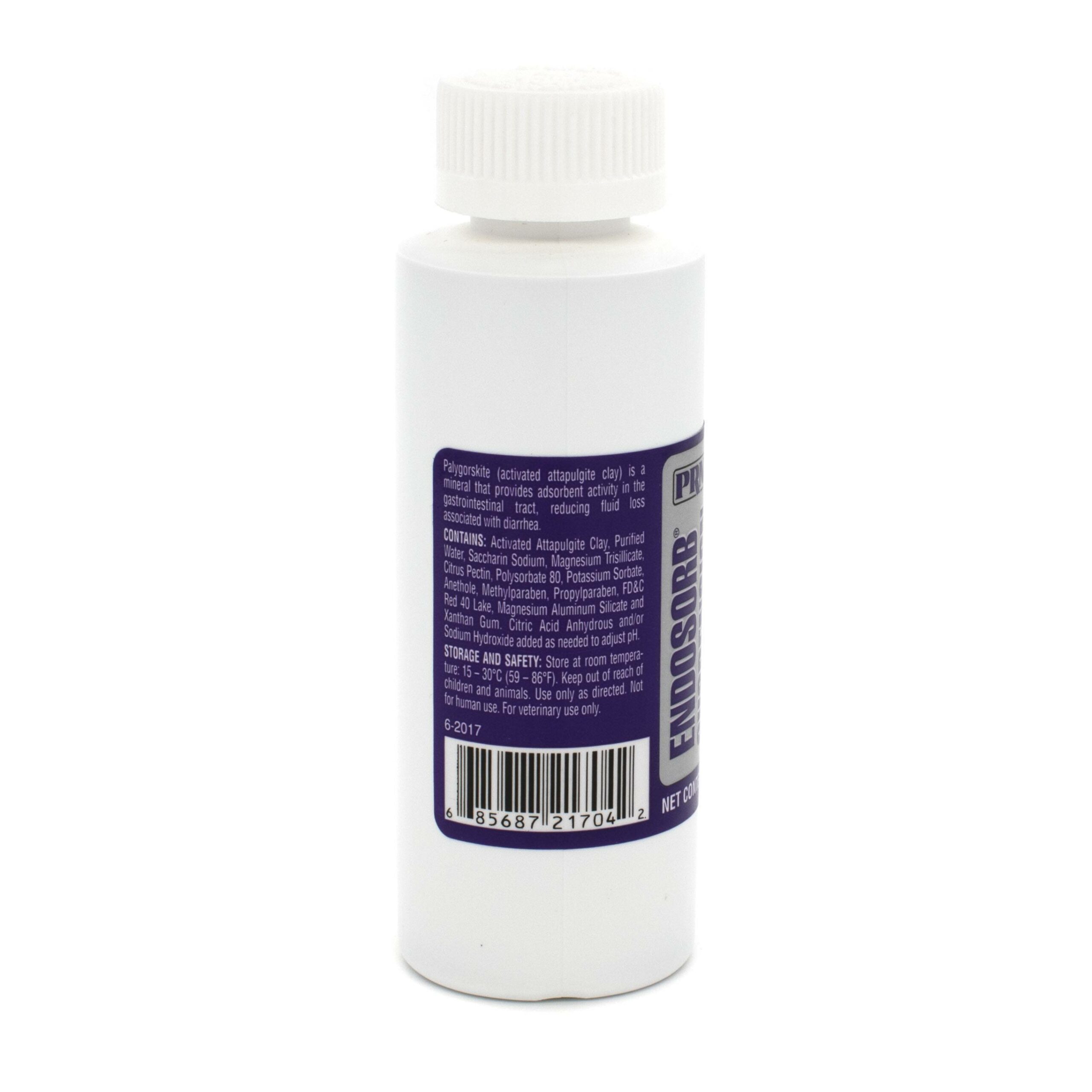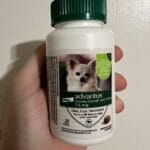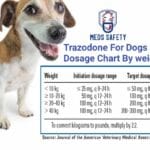Dealing with pet diarrhea can be a stressful experience. Finding a safe and effective solution is paramount. This comprehensive guide provides everything you need to know about Endosorb, a common anti-diarrheal medication for pets. We’ll explore its uses, benefits, potential side effects, and how it compares to other treatments, empowering you to make informed decisions about your pet’s health. Are you interested in other pet health topics? Learn more about fibrous papule removal or the Jameliz facial.
What is Endosorb?
Endosorb is an absorbent anti-diarrheal demulcent for dogs and cats, available in both tablet and liquid suspension forms. Its active ingredient, activated attapulgite (palygorskite), is a natural clay mineral that works by binding toxins, irritants, and excess fluid in the gastrointestinal (GI) tract. This binding action helps to solidify stool consistency and alleviate the discomfort associated with diarrhea. Endosorb also often contains roasted carob pulp and citrus pectin, known for their soothing properties, which can further calm an upset stomach. Manufactured by PRN Pharmacal, Endosorb is generally considered a low-cost treatment option.
Why Use Endosorb?
Endosorb is primarily used to treat non-specific diarrhea—diarrhea without a clearly identifiable cause such as a bacterial infection or parasites. In these cases, where the cause remains unknown, Endosorb’s toxin-binding ability is particularly useful. It helps restore normal stool consistency and provides relief from diarrhea-related discomfort. Some research suggests attapulgite may offer protective effects on the gut lining, although further studies are needed to confirm these findings. Beyond diarrhea, Endosorb may also be beneficial for digestive upset due to dietary indiscretion or food allergies. It can even be used alongside prescribed antibiotics to manage diarrhea as a side effect.
Dosage and Administration
While generally safe, administering the correct dosage of Endosorb is crucial. Always consult your veterinarian for specific instructions tailored to your pet’s weight and condition. The manufacturer’s suggested use (which should always be confirmed by your vet) provides general guidelines:
- Tablets:
- Dogs and Cats (5-25 lbs): 1 tablet every 4 hours.
- Dogs (26-50 lbs): 2 tablets every 4 hours.
- Suspension:
- Cats and Kittens: 2 teaspoons to 2 tablespoons every 12 hours.
Tablets can be given directly or hidden in food or a treat. The liquid suspension should be shaken well before each dose. Endosorb can be administered with or without food, although giving it with a small amount of food may be beneficial for some pets. Again, always follow your veterinarian’s guidance.
Benefits of Endosorb
Endosorb’s benefits extend beyond simply firming stool. It absorbs excess fluid, soothes the GI tract, and removes potential toxins. This multifaceted approach offers comprehensive relief for digestive upset. Furthermore, Endosorb is often more affordable than other anti-diarrheal options, making it an attractive choice for pet owners.
Potential Side Effects and Precautions
Endosorb is generally safe when administered correctly. However, like any medication, it may cause side effects. Constipation, especially with incorrect dosing, is the most frequently reported side effect. Contact your veterinarian immediately if you notice any adverse reactions after administering Endosorb. This medication is specifically formulated for pets and should never be given to humans.
Endosorb vs. Other Anti-Diarrheal Treatments
Several anti-diarrheal medications are available for pets. Here’s a comparison of Endosorb with other common options:
| Feature | Endosorb | Imodium (Loperamide) | Kaopectate | Probiotics |
|---|---|---|---|---|
| Primary Use | Non-specific diarrhea | Diarrhea | Diarrhea, upset stomach | Gut health, diarrhea prevention |
| Speed of Action | Typically 24-48 hours | Variable, can be quick but needs careful dosing | Variable | Gradual, preventative |
| Availability | Over-the-counter, Vet | Over-the-counter (vet approval required) | Over-the-counter (vet advised) | Over-the-counter |
| How it Works | Absorbs toxins, fluid | Slows gut motility | Coats/protects GI tract | Balances gut flora |
| Precautions | Vet consultation advised | Vet consultation required | Vet consultation advised | Generally safe, consult vet for specific conditions |
Important: This table is for general information only. The best choice for your pet depends on individual circumstances and the underlying cause of the diarrhea. Always consult your veterinarian before giving your pet any medication.
Dietary Recommendations During Diarrhea
Diet plays a vital role in managing diarrhea. Offer bland, easily digestible foods like boiled chicken and plain cooked rice during and after a bout of diarrhea. Avoid rich, fatty foods that could exacerbate digestive upset. Ensure fresh water is always available to prevent dehydration.
When to Seek Veterinary Care
While Endosorb is helpful for mild, non-specific diarrhea, it’s not a solution for every situation. Contact your veterinarian immediately if your pet’s diarrhea:
- Persists for more than 24-48 hours
- Is severe or contains blood
- Is accompanied by other symptoms (vomiting, lethargy, loss of appetite)
Early intervention can be critical in addressing more serious underlying health issues.
Where to Buy Endosorb
Endosorb is often available online from reputable pet supply retailers and through your veterinarian. Your veterinarian can provide personalized dosage and usage advice. Partnering with your vet is always the best approach for your pet’s health. Ongoing research continues to explore treatments for diarrhea, and new options are constantly being developed. By staying informed and consulting your veterinarian, you can provide your pet with the best possible care.
- Unlock 6000+ words beginning with he: A comprehensive analysis - April 20, 2025
- Mastering -al Words: A Complete Guide - April 20, 2025
- Master Scrabble: High-Scoring BAR Words Now - April 20, 2025
















